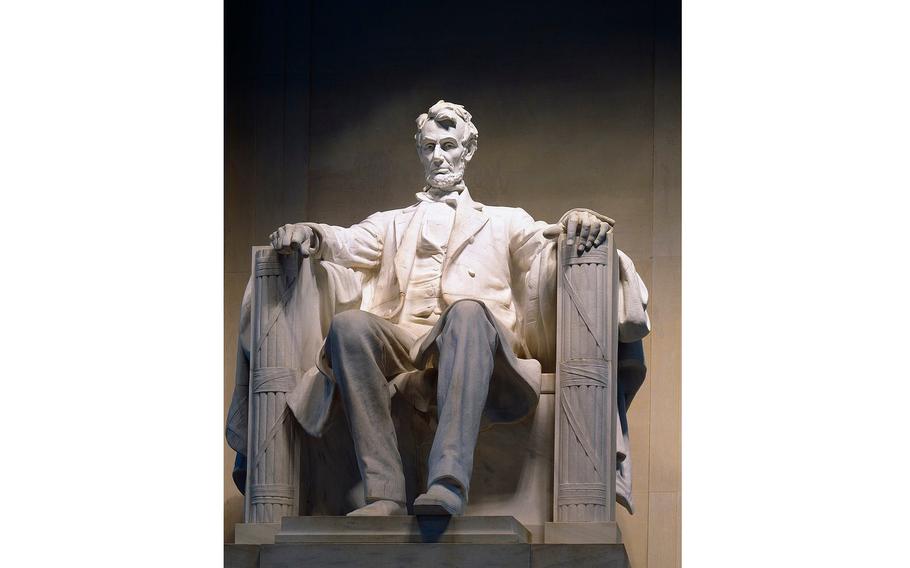
Thanksgiving means actual, not contrived, inclusiveness. President Abraham Lincoln profoundly demonstrates this fundamental point. (The Lincoln Memorial/Facebook)
Thanksgiving means actual, not contrived, inclusiveness. President Abraham Lincoln profoundly demonstrates this fundamental point.
On Oct. 3, 1863, the White House issued the Thanksgiving Proclamation, declaring the last Thursday of November to be a “day of thanksgiving and praise to our beneficent Father who dwelleth in the Heavens.” The proclamation also requested “the interposition of the Almighty Hand to heal the wounds of the nation and to restore … peace, harmony, and Union.”
Earlier, Lincoln had ordered government offices closed on Nov. 28, 1861, for a day of thanksgiving. Up until the 1863 proclamation, individual states had celebrated days of giving thanks. Sarah Josepha Hale, editor of the influential Godey’s Lady’s Book, had written to Lincoln in late September of that year pressing for a national day of thanks, a goal she pursued for many years without success.
According to Lincoln’s administrative aide John Nicolay, Secretary of State William H. Seward signed the document. Lincoln and Seward by then were friends as well as allies.
Unity was an overarching Lincoln theme throughout the Civil War, employed with shrewd calculation and extraordinary political timing. By the fall of 1863, the strategic position of the Union had taken a welcome turn for the better.
In July, there were two significant victories — the Battle of Gettysburg in Pennsylvania and the capture of Vicksburg, Miss. A sizable Confederate army would never again invade the North, and the great Mississippi River was now in Union control.
During the preceding year, one military development provided Lincoln precious political opportunity. On Sept. 17, 1862, the Army of the Potomac, under Gen. George B. McClellan, defeated Gen. Robert E. Lee’s Army of Northern Virginia at Antietam Creek in Maryland. The victory was technical; Lee’s army withdrew in order. Nonetheless, Union forces occupied the battlefield. This outcome did qualify as a Union military success, desperately welcome.
Lincoln faced extremely serious challenges beyond the Confederacy. McClellan was popular with rank-and-file soldiers, and nurtured national political ambitions. He was committed to the Union but strongly opposed abolition of slavery. A talented organizer and administrator, he refused to be aggressive in attacking Lee’s army.
McClellan became insubordinate, demanding control over all war policy. Lincoln then fired him. McClellan became the Democratic Party’s 1864 presidential nominee; Lincoln defeated him again.
The Civil War includes so many related intense conflicts, including within both the Union and Confederate political coalitions, that this serious challenge to civilian authority over the military in the United States is easily overlooked. Lincoln firmly asserted civilian control, not to be challenged again until Gen. Douglas MacArthur’s very public criticism of President Harry Truman’s policies during the Korean War nearly a century later led to that general’s removal.
Lincoln, finally securing control of the Army, moved quickly to exploit the Antietam victory by issuing the Emancipation Proclamation. The executive order of Jan. 1, 1863, freed slaves in the Confederate states. From the fall of 1862, the U.S. government issued a series of warnings under the Second Confiscation Act, passed by Congress on July 17, 1862. The legislation confirmed in law Lincoln’s War Powers.
Critics argue Lincoln should have included states in the Union, but that would have been unlawful and unwise. Slavery was still legal under the Constitution, and ended in law only when sufficient states ratified the Thirteenth Amendment to the Constitution, proclaimed Dec. 18, 1865. Slavery had strong support in border states and areas of the North.
By design, the Emancipation Proclamation is a detailed, dry lawyer’s document making the case for removing property, with emphasis on procedure. There is no reference to fundamental moral concerns expressed elsewhere, especially in Lincoln’s Gettysburg Address and Second Inaugural.
Civil War goals changed from preserving the Union to abolishing slavery.
Abraham Lincoln used specific procedures for transcendent goals, employing astonishing political skill. He provides a worthwhile standard against which to evaluate political leaders.
Give thanks.
Arthur I. Cyr is author of “After the Cold War” (NYU Press and Palgrave/Macmillan).